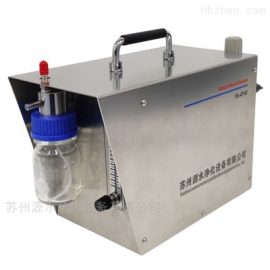Endotoxin Assay Kits for Accurate Bacterial Toxin Detection

# Endotoxin Assay Kits for Accurate Bacterial Toxin Detection
## What Are Endotoxin Assay Kits?
Endotoxin assay kits are specialized tools designed to detect and quantify bacterial endotoxins in various samples. These kits play a crucial role in pharmaceutical, medical, and research applications where bacterial contamination must be identified and measured with precision.
## The Importance of Endotoxin Detection
Bacterial endotoxins, also known as lipopolysaccharides (LPS), are toxic components of the outer membrane of Gram-negative bacteria. Their presence can cause:
Keyword: Endotoxin Assay Kits
– Fever and inflammation in humans
– Product contamination in pharmaceuticals
– False results in biological research
– Serious health complications in medical applications
## How Endotoxin Assay Kits Work
Modern endotoxin assay kits typically utilize one of these methods:
### 1. Limulus Amebocyte Lysate (LAL) Test
The most common approach uses blood cells (amebocytes) from horseshoe crabs, which clot in the presence of endotoxins. This method offers:
– High sensitivity (detection down to 0.001 EU/mL)
– Rapid results (typically 15-60 minutes)
– Multiple format options (gel-clot, turbidimetric, chromogenic)
### 2. Recombinant Factor C (rFC) Assay
An animal-free alternative that uses recombinant technology to detect endotoxins, featuring:
– No reliance on horseshoe crab blood
– Comparable sensitivity to LAL tests
– Growing acceptance in regulatory guidelines
## Applications of Endotoxin Assay Kits
These kits serve critical functions across multiple industries:
### Pharmaceutical Manufacturing
– Quality control of injectable drugs
– Medical device testing
– Water system monitoring
### Biomedical Research
– Cell culture contamination detection
– Vaccine development
– Inflammation studies
### Clinical Diagnostics
– Sepsis detection
– Meningitis diagnosis
– Monitoring of dialysis fluids
## Choosing the Right Endotoxin Assay Kit
When selecting an assay kit, consider these factors:
– Sensitivity requirements
– Sample matrix compatibility
– Regulatory compliance needs
– Throughput capacity
– Cost considerations
## Regulatory Considerations
Endotoxin testing is strictly regulated by:
– FDA (Food and Drug Administration)
– USP (United States Pharmacopeia)
– EP (European Pharmacopoeia)
– JP (Japanese Pharmacopoeia)
Ensure your chosen kit meets the appropriate regulatory standards for your application.
## Future Developments in Endotoxin Detection
Emerging technologies in this field include:
– Microfluidic detection systems
– Biosensor-based approaches
– Automated high-throughput platforms
– Improved recombinant alternatives to LAL
These advancements promise faster, more accurate, and more sustainable endotoxin detection methods.
## Conclusion
Endotoxin assay kits provide essential tools for maintaining product safety and research integrity across multiple disciplines. By selecting the appropriate kit and methodology for your specific needs, you can ensure accurate detection of bacterial toxins while meeting regulatory requirements. As technology advances, these detection methods continue to evolve, offering improved performance and more ethical alternatives to traditional testing approaches.


